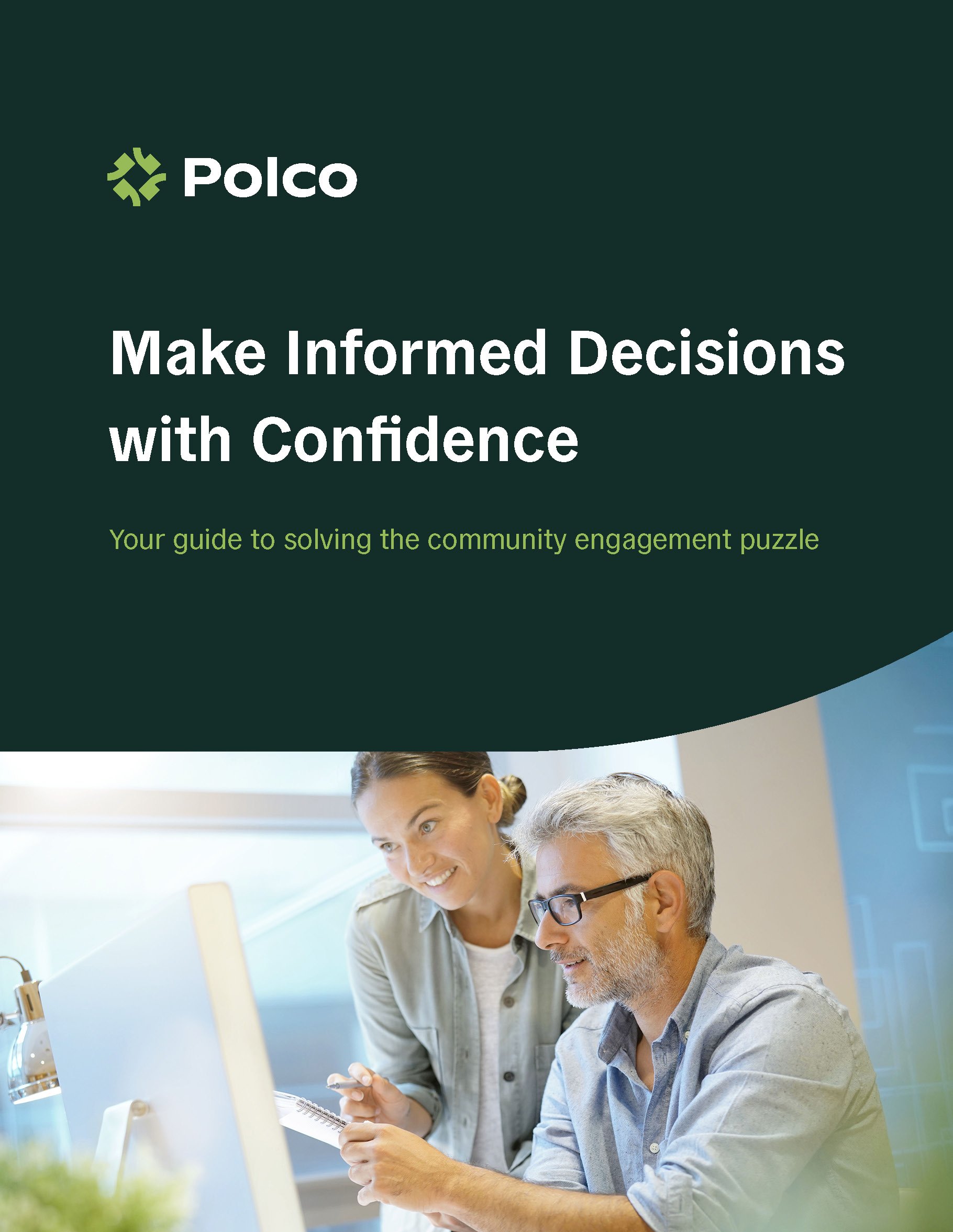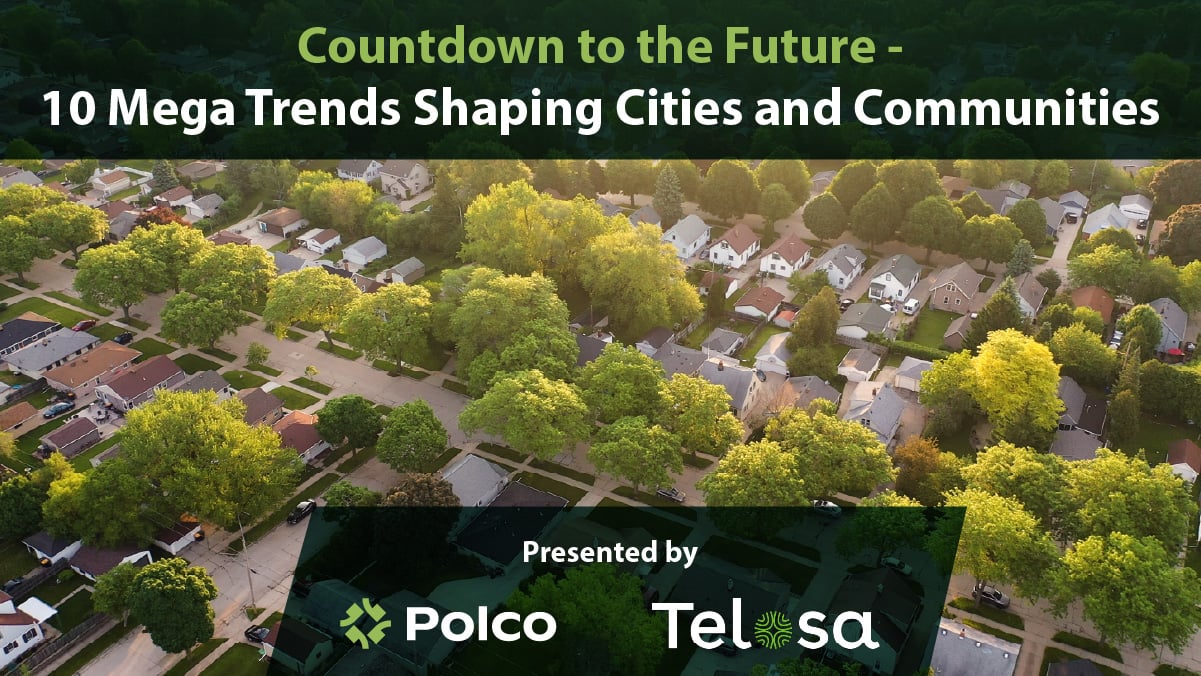Share this
Coronavirus: Free Survey Tools for Critical Local Government Response
by NRC on March 13, 2020

Survey science experts develop free questions for local governments to use to engage residents regarding the Coronavirus (COVID-19) pandemic.
Get the Full Suite of COVID-19 Response Surveys at No Cost, on Polco
As you lead your residents through this public health emergency, it has never been more important to understand what is happening with them and businesses in your community.
We have developed free-to-deploy online surveys to help you collect quality community-level data in real time to better tailor your Coronavirus outreach and response. Using our vetted tools, you’ll be contributing to larger research endeavors, and gain the added benefit of comparing your results to benchmark reports.
JUST RELEASED - A Survey on Resident Recovery Readiness — How do residents feel about recovery and eliminating quarantine measures? What eases residents’ minds or makes them comfortable, and what makes them uncomfortable? How has COVID-19 affected residents’ spending, are those spending changes short term, and what challenges do they face going back to work? Check in with your residents to help understand reactions and guide your community.
The surveys are pre-loaded in Polco as drafts ready for your review, publication, and promotion.
Help and More Resources
- The COVID-19 Community Survey Playbook
- Posting Your COVID-19 Community Survey on Polco
- COVID-19: In-Person Meetings Impossible? Here’s How to Engage Residents Online
- New Survey Gathers Residents’ COVID-19 Vaccination Opinions
The Role of Local Government Response in the Coronavirus Pandemic
– By Michelle Kobayashi, Sr. VP of Innovation, Polco / National Research Center (NRC) –
Many local governments have handled natural disasters such as floods and fires. But managing through a pandemic like COVID-19 is new territory for all.
In times of crisis, local governments have a responsibility to educate and communicate with the community, without spreading misinformation or causing undue panic. In past pandemics (e.g. Ebola, Polio, AIDS), poor and missing information were among the greatest failings in public health response.
To close knowledge and communication gaps quickly, local governments should seek information from residents about their attitudes, behaviors, and concerns. So Polco/NRC is providing free online engagement tools developed by survey experts with backgrounds in local government and epidemiology.
Polco also can be used to send information out and make sure residents are hearing from the correct places: the Centers for Disease Control (CDC) as well as state and local departments of public health. It is important that shared information is up-to-date, as the state of the pandemic changes with each day.
Important Tips for Writing Your Own Questions About Coronavirus
If you would like to ask your residents questions not covered under Polco's benchmarking surveys, please consider the following recommendations.
1. Quell rumors and misinformation.
Remember there is a lot of misinformation floating around about the Coronavirus. Please make sure your questions are not promoting misinformation or causing undue panic. For example, if you ask people if they have been tested for COVID-19, along with a list of behaviors recommended by the CDC, many may believe they need to rush out and get tested.
2. Share credible sources for accurate information.
Always make sure to provide websites or phone numbers where people can seek accurate information about COVID-19. The CDC and your local health department are key information sources.
3. Subdue panic.
Remember that a critical responsibility of local government is to quell panic and frenzy. As with all of your communications related to COVID-19, be responsible and provide leadership in this crisis. When posting survey questions, use objective language and writing styles that do not promote fear.
4. Ask questions within your appropriate realm of influence.
Don’t ask policy questions to residents about topics that you cannot control or where they have little say. For example, don’t ask residents if K-12 schools should remain open or closed unless you have the authority to make that decision and believe resident opinion should help shape your response.
About Michelle Kobayashi
Michelle Kobayashi has 30 years of experience conducting research, surveys and policy studies for government, school districts and community-based organizations. She has authored numerous journal articles, chapters, and books on research techniques. She has trained hundreds of government and non-profit workers on the methods of evaluation, survey research, and uses of data for community decision-making. Kobayashi earned her master’s degree in Public Health at the University of Colorado, has written numerous articles in the field of epidemiology and biostatistics, and has served as a visiting professor of epidemiology. Michelle Kobayashi keeps Polco / National Research Center (NRC) on the leading edge of the survey research industry, as the Senior Vice President of Innovation.
For up-to-date, accurate information on COVID-19, please visit the official website for the Centers for Disease Control and Prevention (CDC).
For more information regarding local government’s role with the Coronavirus pandemic, please see resources from:
- National League of Cities (NLC)
- International City/County Management Association (ICMA)
- Engaging Local Government Leaders (ELGL)
This article is intended for informational purposes only and does not replace direction from the Centers for Disease Control and Prevention (CDC), local public health departments, or providing healthcare practitioners.
Related Articles
- Public Opinion Ratings of Health and Emergency Services on EMS Week
- How to Prepare Your Community for the Aging Population
- Using Engagement Data to Understand Your Community Needs
Share this
- News (154)
- Featured (140)
- Case Studies (98)
- Webinars (66)
- Resident Engagement (28)
- Budget and Finance (23)
- Simulation Tools (19)
- NCS (18)
- AI (13)
- CASOA (13)
- Product Updates (12)
- Track (11)
- Balancing Act (10)
- Older Adults (10)
- Benchmark Surveys (9)
- Engagement & Outreach (8)
- Taxpayer Receipt (8)
- About Polcos Product (7)
- Grants (7)
- Prioritize (6)
- Economic Growth (5)
- Public Safety (5)
- Housing (4)
- NBS (4)
- NES-LE (4)
- NLES (4)
- ARPA (3)
- About Polco (3)
- Announcements (2)
- NES (2)
- Understand Your Data (2)
- Best Practices (1)
- CLS (1)
Subscribe to Our Newsletter

Featured Report
Download your copy of "Make Informed Decisions with Confidence: Solving The Community Engagement Puzzle" today!
You May Also Like
These Related Stories

Beyond the Spreadsheet: How AI is Transforming Public Budgets

Community 2.0: A Local Blueprint to Heal a Divided Nation

